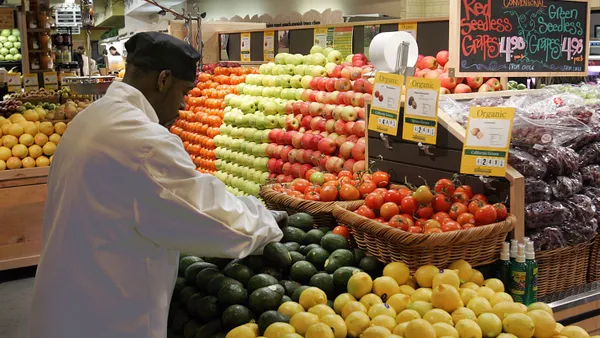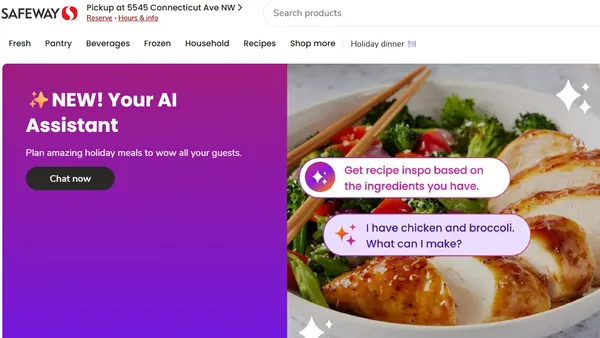Dive Brief:
- U.K.-based tech company Spoon Guru has partnered with Walmart’s Jet.com to provide product recommendations and information to customers with specific dietary restrictions using artificial intelligence and algorithms. The service is provided free of charge.
- Spoon Guru will tag products on Jet.com for customers who want to filter their food searches to include specific dietary attributes. Dietary tags will include allergies and intolerances like milk or tree nuts and individual dietary requirements including vegan, vegetarian, low-fat or high fiber.
- In the U.K., Spoon Guru provides services for grocery chain Tesco. According to Spoon Guru, the partnership has led to a 420% increase in conversion in search terms since the dietary filters were introduced.
Dive Insight:
According to Spoon Guru’s CEO Markus Stripf, more than 64% of the world’s population has some form of dietary restriction and according to the International Food Information Council Foundation’s annual survey, more than one-third of Americans follow a special diet.
Although Spoon Guru made its U.S. debut in March with an app available to shoppers, its partnership with Jet will give the company higher visibility and allow a targeted customer base to try out the technology.
Since its acquisition by Walmart in 2016, Jet’s grocery segment has expanded, but competition in the New York City area from online retailers like FreshDirect and Amazon pose a threat. Using Spoon Guru's technology, Jet.com can offer something unique and stand out to shoppers who have a dietary restriction and appreciate a more personalized experience.
During last year’s Groceryshop conference in Las Vegas, executives from Jet spoke of the importance of retailers leveraging AI and data to boost personalization.
"It's clear we need personalization if we want to be successful and if we want personalization, we're gonna need AI, but AI alone isn't going to solve a thing for us. AI isn't a strategy, it's a technology," said Jack Hanlon, Jet's vice president of analytics. "We need to think about different formats in e-commerce and different user experiences and that would involve actually including customer-centricity in the core."
Artificial intelligence companies focused on taste and dietary preferences are making their way into the food and grocery industry slowly but surely, promising a more personal experience for shoppers both in-store and online. As grocers like Kroger utilize smart shelves in-store, customers will begin to see more access to dietary information and personalized suggestions based on their preferences as they shop physical aisles. AI company FlavorWiki recently partnered with blockchain company Ripe.io to trace and track consumer evaluation of taste as foods move through the supply chain.










